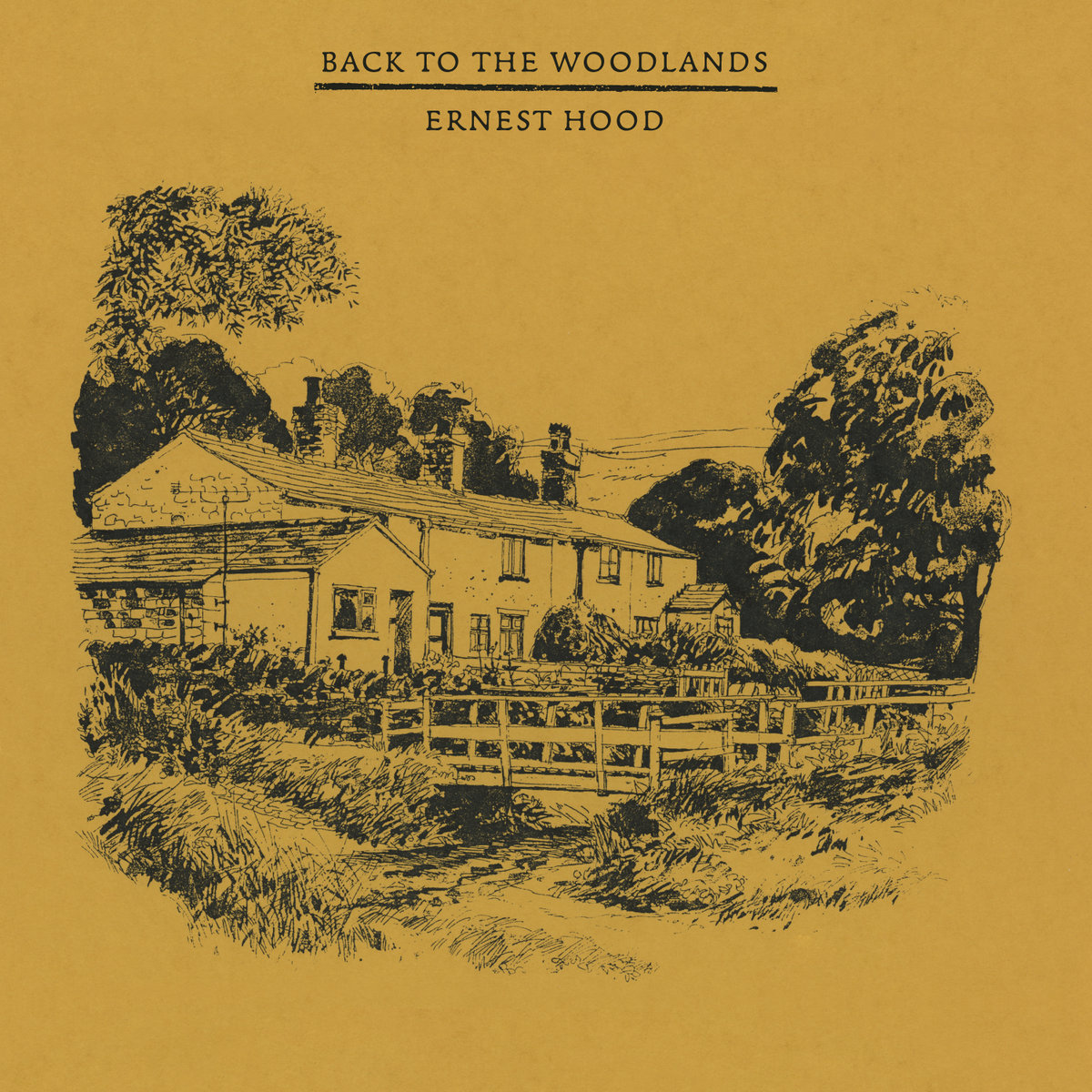 Ernest Hood is best known for the 1975 release Neighborhoods, a unique album of locations recorded during his travels through Oregon combined later with his zither and synthesizer music. It is far more common now but Hood was a pioneer in the use of "found sound." Back To The Woodlands harks from the same (1972-1982) period but has never been released until now. It is a fine addition to Hood's legacy of work which is reflective, warm, and inviting, without being easy, silly, or overly sentimental.
Ernest Hood is best known for the 1975 release Neighborhoods, a unique album of locations recorded during his travels through Oregon combined later with his zither and synthesizer music. It is far more common now but Hood was a pioneer in the use of "found sound." Back To The Woodlands harks from the same (1972-1982) period but has never been released until now. It is a fine addition to Hood's legacy of work which is reflective, warm, and inviting, without being easy, silly, or overly sentimental.
Neighborhoods is a classic. It was originally intended as a gift for housebound people in order that they could listen and enjoy feeling transported somewhere else. This was something dear to Ernest Hood's heart, himself having been stricken with polio since his twenties, forced to spend a whole year in an iron lung, and thereafter get around on crutches or in a wheelchair. Unsurprisingly, there is a bittersweet quality to all of Hood's music. His location recordings capture children gently mocking each other (a playground chant of "Johnny's got a sweetheart" is riffed into the 11 minute track "After School" on Neighborhoods), the thud of basketballs, birdcall, frog croak, insect chirp, snippets of conversation, an ice cream truck, screen doors, a model T driving over a manhole cover, hollers, clanging metalworking tools, small planes, tales being told, a can kicked down the road, and more. All merge with Hood's instrumentation to create a tender and tangible nostalgic sound, sound which is naturally capable of stimulating remembrance of our own childhood memories: father whistling, the smell of baking, the wet brain-damaging smack of a cement heavy caseball, the lady next door sunbathing with the radio on, and so on.
Back To The Woodlands contains field recordings which are quite different from those of its predecessor. The sounds of the small town (as if preserved in a time capsule) have been replaced by a timeless environmental ambience of nature. "Rain" for example is simply the sound of rain cascading down mixed with bright zither jangles. You could say that the track doesn't "go anywhere" but it surely can take you somewhere nice. "Into The Groves" is an evocation of sunlight winking through leaves, while "Warm Pathways" almost brings to mind the singular musical genius of gospel preacher Washington Phillips. "Pleasant, This Garden" sounds like a gentle ramble set at about the pace of a stroll in the countryside.
I love the—all too brief—contrast of "The Jantzen Rag (Racoons)," a swinging upbeat interlude which bursts in and out as if someone has turned on a television theme tune for barely a minute. "Beaver's Pond" is equally brief, with the quality of a fine pencil sketch which might have been turned into a larger picture. Indeed, the album is full of such sketches, using music to convey solitude, the sanctity of natural places, the sense of human optimism, and, this being Ernest Hood, the profound ache of nostalgia. Found sound is much less audible and prominent on Woodlands, though, to the point where I wonder if several tracks do not include any at all.
"Bedroom of the Absent Child," as evocative a title as I have ever seen, is one of several tracks which caused me to reflect. It's hard to describe, but it was like remembering with sadness and affection a group of frequently visited and occupied rooms in a house long since demolished and built over by people with no memory of those of us who lived there before.
Throughout his life Ernest Hood was a keen contributor to local life. He valued the atmosphere of community life even as he sensed it changing and disappearing. His field recordings and the art he made from them preserve the feeling of a sweet remembered childhood. A jazz guitarist in his youth, he adapted his choice of instrument in response to the illness which rendered him paraplygic. His creations sometimes resemble old half-forgotten radio and television themes, and at other times (with parts of Neighborhoods) seems as if they could be the actual audio version of a movie. He kept his sense of humor and was modest about his music, suggesting that if it sounded sour or bitter compared to the sweetness of the field recordings, it is because that is the true essence of nostalgia.
The final piece, "Untitled," is the most abstract track here, with zither notes plucked in a rather formless fashion and ending suddenly, as if suggesting unfinished business. Ernest Hood leaves behind his albums and will also be remembered for earlier radio programs (travelogs which predate his albums) and for becoming a pioneering campaigner for the right to die with dignity. As his life was coming to an end he struggled gamely to be allowed to leave it on his own terms. Eventually, he won the right to decide to discontinue medical care, and had all the details agreed including a good glass of wine. However, when the time came, his physician left him in the lurch and a covering junior doctor did not feel able to carry out his wishes. Finally, a young family member assisted and set him off on his next journey—out of this world.
Read More

